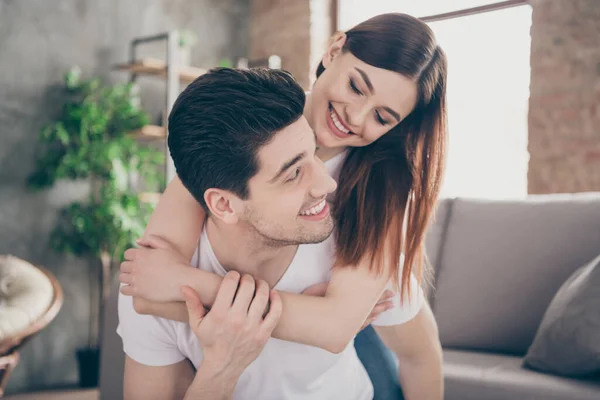You can usually tell somebody’s feelings when you can tell when he’s nervous around you. Being nervous is a normal reaction, even if anyone has an interest in you but isn’t sure how to express it. Many men experience a mixture of worry and excitement in these circumstances, which can result in both overt and covert indications of nervous behavior.
Hesitating when speaking or fidgeting are examples of behaviors that are frequently revealing. This post will discuss the telltale indicators that he is anxious around you, the reasons for his feelings, and how to react if you are also interested in him.

Signs He Is Nervous Around You
He Steers Clear of Direct Eye Contact
Avoiding eye contact is one of the most obvious signs of anxiousness. Looking you in the eyes can be intimidating for someone who likes you but is bashful or intimidated. What to look out for is as follows:
Quick Looks: He might give you a fleeting glance before turning away and then looking back. This may be a sign that he wants to look at you but is hesitant.
Downward Glances: He may feel self-conscious if he frequently looks down when speaking to you.
Quick sideways glances are one method he might watch you without drawing too much attention to himself.
His Reason for Not Making Eye Contact
He frequently avoids eye contact to keep himself from feeling overly exposed. Many people experience increased anxiousness when they stare into the eyes of someone they are attracted to.
2. He plays with objects or fidgets.
One common nervous habit is fidgeting. A guy who is anxious around you may fiddle with his hair, continuously adjust his clothes, or keep his hands occupied.
Playing with His Phone or Keys: He might release tense tension by keeping his hands busy.
Changing His Clothes: He can decompress by adjusting his collar, repairing his watch, or straightening his shirt.
Touching His Face or Hair: Touching the face or hair is a self-soothing activity that conveys excitement or discomfort and is frequently used in nervous gestures.
The Reasons Behind Fidgeting
People that fidget can manage their uneasiness. When they’re anxious, especially around someone they’re attracted to, it’s a subtly effective technique for them to relax and let off steam.
3. He Stumbles Over His Words
Stumbling over words, forgetting what he was going to say, or making awkward pauses can indicate nervousness. When he’s trying to impress you but feels flustered, his thoughts may get scrambled.
Frequent Pauses: He may stop mid-sentence or need to think about his next words carefully.
Repeating Words: Nervous people sometimes repeat themselves to fill in pauses.
Correcting Himself: If he quickly corrects himself or apologizes for saying something awkward, he may be feeling insecure.
Body Language That Indicates Anxiety
1. Closed-Off Body Language
A worried guy may adopt a “closed” posture around you since body language frequently conveys more information than words. He may do this by keeping his hands in his pockets, turning slightly away from you, or crossing his arms.
The Causes of Closed-Off Posture
In this situation, closed-off body language typically indicates self-consciousness, even though it may appear to be apathy. He can have self-doubt and unconsciously take a defensive posture.
2. Sweating or blushing
Sweating or blushing are examples of involuntary physical reactions that indicate anxiety. He might feel under pressure or shy if he flushes a lot or seems to perspire more while he’s near you.
Blushing: He may blush, particularly if he is smiling or staring at you.
Sweating: When someone is feeling self-conscious or attracted, they may naturally start to perspire nervously, especially around their forehead or hands.
More Inconspicuous Indications He Gets Uneasy Around You
1. His Voice Alters
Vocal tone can vary when one is nervous. He might talk faster, softer, or with a slightly higher pitch than normal.
The Reasons Behind His Voice Changes
Nervousness can cause the vocal cords to constrict, which makes it harder to manage pitch and tone. He may be feeling intimidated or eager around you if his voice changes.
2. He Laughs More Frequently Than Normal
Laughing too much might be a coping mechanism for anxiety. He might be using humor to mask his nervous energy if he laughs at everything you say or seems to giggle even when it’s not humorous.
Laughing too much at unfunny things is known as over-laughing.
When there is a pause in the conversation, nervous laughs occur when people laugh quickly.
Behavioral Indications That He Is Uneasy Around You
1. He makes an effort to make an impression on you
An anxious man who is attracted to you can go out of his way to highlight his positive traits, whether it’s by discussing his accomplishments or attempting to make you laugh.
Speaking about Achievements: In an attempt to impress you, he may tell you about his accomplishments.
Offering Assistance: He may be trying to make a statement by being unduly helpful or perceptive.
The Reason He’s Attempting to Impress
The motivation behind this action is a desire to get your acceptance. He may believe that in order to get your attention, he must display his best traits if he is anxious around you.
2. Despite his constant presence, he acts aloof
Sometimes, nervous people try to mask their emotions by being unconcerned. He can be concealing his desire if he is constantly around but avoids direct discussion or comes across as distant.
Making frequent appearances: Even if it looks inadvertent, showing up in the same locations as you.
Acting Like Nobody Is Observing You: pretending to be too preoccupied or indifferent, even though he is obviously listening.

The Physical Signs of Nervousness
Depending on the person, nervousness can frequently show itself as a range of bodily symptoms, which can range from slight to highly noticeable. These symptoms, which can be involuntary, are unmistakable markers of uneasiness or nervousness in romantic or social settings. Understanding how someone is feeling without them having to express it directly might be facilitated by recognizing these clues.
Fidgeting or Restlessness
Anxiety is often characterized by restlessness or fidgeting. People who are nervous or self-conscious may move repetitively or change their environment to make themselves feel better. To “settle” themselves, a person might, for instance, twiddle their fingers, tap their foot repeatedly, or often adjust their wardrobe.
Anxiety-related tension can be released by these tiny, frequently unintentional behaviors. In addition, they may indicate a wish to distract oneself from the anxiety they are feeling or to draw attention away from their discomfort. While fidgeting might not seem like much, it is one of the simplest ways to tell when someone is nervous or tense.
Avoiding Eye Contact
Avoiding eye contact is another important physical indicator of anxiousness. Because direct eye contact can feel overpowering or threatening to someone experiencing anxiety, they may find it difficult to keep a steady stare. They can emotionally retreat and avoid facing their discomfort by avoiding eye contact, which is frequently a protective tactic.
However, some people may overcompensate for this anxiety by looking at someone too attentively, which can also come across as forced or out of character. Although the attempt to project confidence may be the source of this extensive eye contact, it frequently conveys the opposite message: someone who is internally straining to appear composed and in control but is actually experiencing anxiety or uncertainty.
Sweating or Flushing
Other obvious physical reactions that are frequently associated with nervousness include blushing or sweating. When someone feels threatened or anxious, even in a non-physical situation, their body’s fight-or-flight mechanism kicks in, causing these physiological reactions.
An individual may begin to perspire more than normal when they are anxious, especially on their forehead, upper lip, or palms. A shiny face or wet clothing are two obvious symptoms of discomfort that may result from this. The rush of blood to the skin’s surface during self-conscious or embarrassed moments can also cause blushing,
which is characterized by redness of the skin, particularly around the face, neck, or chest. Involuntary reactions such as blushing and perspiration can be indicators of an individual’s internal nervousness.
Behavioral Cues He Might Show
In addition to bodily symptoms, certain habits that a person may unintentionally adopt might also be evidence of anxiousness. These behavioral indicators can provide insight into an individual’s inner state, particularly in cases of anxiety, self-consciousness, or uncertainty. Recognizing these signs is essential for identifying nervousness, even when the person is attempting to hide it with words or behavior.
Over-explaining or Rambling
Men who are anxious often overexplain or ramble, which is a common behavioral cue. They may talk too much, frequently repeating themselves or going into extraneous details, in an attempt to fill the void or soothe their discomfort. This propensity to overcompensate may result from a desire to appear informed and self-assured or from a dread of awkward pauses.
People who are more anxious may find it more difficult to know when they have talked enough, which can result in long monologues that do not seem totally pertinent to the topic at hand. This frantic babble serves as a diversion from their inner turmoil and gives them a sense of control in an unsettling or frightening scenario.
Unusual Silence or Stammering
On the other end of the scale, anxiousness can also make someone remarkably silent or make them stammer. People who are anxious may have trouble expressing themselves clearly, which might result in lengthy pauses or trouble coming up with the proper words. This may indicate that their nervousness is taking over and causing them to doubt their words or their delivery.
Sometimes this hesitation or stammering can make a conversation feel awkward since the speaker may be attempting to avoid saying something that could make them look silly or overanalyzing their answers. These patterns of silence or fragmented speech, which expose their underlying issues, are more likely to occur when individuals are feeling self-conscious.
Frequent Nervous Laughter
Another behavioral indicator that frequently indicates anxiety is nervous laughing. When someone is anxious, they could chuckle to mask their discomfort or at inappropriate times. This kind of laughter is often a reaction to stress or discomfort rather than true amusement.
They utilize nervous laughing as a coping strategy to lessen the discomfort they are experiencing at the time. It may be an attempt to seem more relaxed or friendly when, in reality, the person is highly nervous. It may be obvious to others that the laughter is being used to cover up deeper insecurities if it sounds forced or inappropriate.
Body Language Signals
When someone is tense or anxious, their body language is particularly important in expressing their feelings. Subtle bodily clues are frequently used by people to express their feelings, and they can sometimes be more telling than spoken words. Even if someone is attempting to hide their nervousness, you can still read their internal feelings by identifying the several body language signs that nervousness tends to show.
Closed or Defensive Posture
A closed or protective stance is one of the most prevalent body language indicators of anxiousness. Crossing one’s arms or legs out of habit while uncomfortable can act as a barrier between oneself and other people. They adopt this position as a subconscious defense against uncomfortable circumstances or imagined emotional dangers.
In order to feel secure and in control, the body automatically turns inside. Furthermore, stepping back a little or maintaining a physical distance can convey uneasiness. This is frequently observed when someone tries to keep their personal space in order to establish some emotional distance from the source of their worry because they feel exposed or uncertain about the circumstances.
Mirroring Your Movements
However, imitating the posture or motions of the person they are dealing with is another body language indicator that worried people may display. This unconscious imitation is a typical social activity that is frequently employed as an unintentional effort to establish rapport or foster a feeling of connection.
In an attempt to feel more at ease or in sync with the other person, an anxious individual may mimic the body language, gestures, or even speech patterns of the other person. For instance, they can unknowingly do the same if you lean forward or cross your legs.
Subtle Gestures or Touching
tiny body language indicators of uneasiness include self-touching and tiny motions, which are frequently uncontrollable responses to stress or worry. When someone feels anxious, they could touch their face a lot, including massaging their chin, touching their lips, or stroking their hair.
These acts can serve as self-soothing mechanisms, providing solace during otherwise stressful situations. In order to divert their attention or relieve stress, anxious people may also tinker with objects like watches, jewelry, or sleeves or alter their attire. Despite their small size, these gestures frequently convey a strong sense of uneasiness or discomfort. Touching one’s face or hair can be an unconscious way to reduce anxiety and give one a fleeting sense of control.

FAQs:
How can I know whether his nervousness stems from his feelings for me?
Interest is frequently indicated by nervousness around you, particularly when it is accompanied by bodily indicators like blushing, stammering, or squirming.
If he starts to become shy or mute, what should I do?
In order to reduce tension, try to promote a laid-back atmosphere by sharing personal information or engaging in light conversation.
What distinguishes apathy from nervousness?
While disinterest usually entails a lack of involvement or responsiveness, nervousness demonstrates his commitment to leaving a positive impression.
Why doesn’t he look me in the eye?
Feeling uncomfortable or self-conscious can cause people to avoid eye contact, particularly if he takes an interest in you but is unclear of your feelings.
Is apprehensive laughing an indication of curiosity?
Yes, uncomfortable laughing frequently means that he values your viewpoint and is trying to convey his nervousness or fill awkward silences.
Am I able to calm him down?
Of course! You can make him feel more at ease by being personable, paying close attention to him, and engaging in humorous discussion.
What if he is often embarrassed?
Don’t make fun of his nerves; instead, show him respect. Instead, reassure him gently that it’s acceptable to be who he is.
How can I express my interest as well?
Give brief compliments, smile frequently, and make comfortable eye contact. These actions demonstrate interest in one another without pressuring him.
Does his anxiousness indicate a lack of self-assurance?
Not always. Because they want to make a good impression, many individuals with self-assurance get anxious around someone they are attracted to.
How should one react to a man who is anxious?
Pay attention, smile, and be kind. He can feel more at ease and valued with small gestures.
CONCLUSION:
When someone genuinely cares about leaving a good impression, it’s normal to feel nervous. By having aware of the above signs, you can better comprehend his motivations. His nerves are frequently displayed through verbal clues like stammering and physical ones like blushing and squirming.
Keep in mind that being polite, patient, and honest will help him relax. React warmly when you see these symptoms, and he may eventually feel more comfortable being himself. His anxiety might eventually transform into greater comfort and trust, resulting in a deeper and more meaningful relationship.